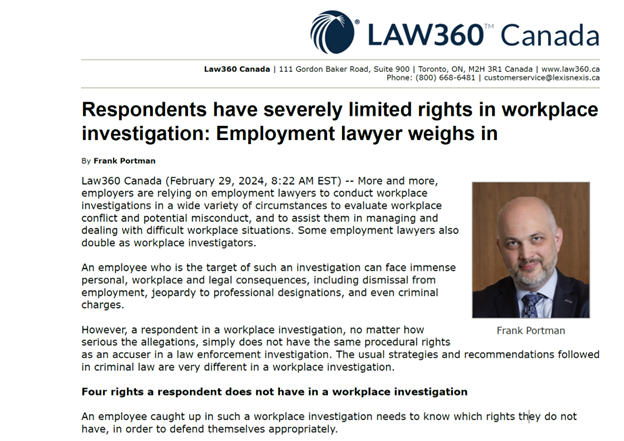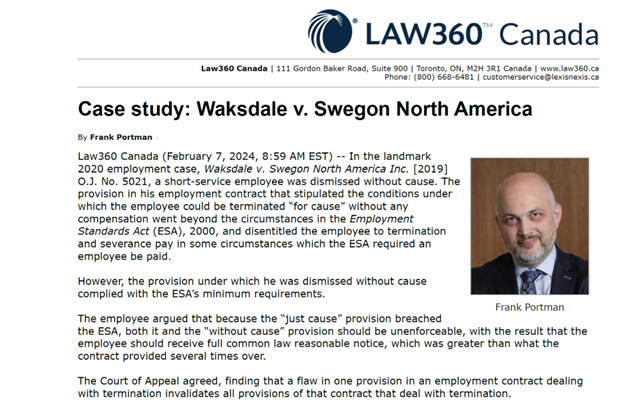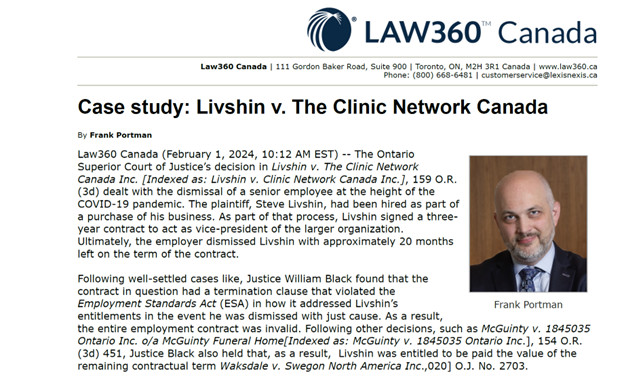Lawyers
Advisors
Strategists

We’re Massey LLP, a boutique law firm comprised of Toronto lawyers who serve business, government, and individuals.
No other law firm of our size provides the same depth and breadth of legal services. We have inordinate bench strength. We believe legal talent and experience matter.
We are lawyers.
We are advisors.
We are strategists.
Our services
As Toronto commercial lawyers, we want to empower our business clients to be successful. Our Toronto business lawyers can assist you with: share purchase agreements and shareholder agreements; equity and debt financing; secured lending and borrowing; growth, commercial real estate and leasing, as well as labour law, employment law, HR law for companies, and workplace investigations.
Equally important, our commercial lawyers advise clients on growth strategies for business and wealth planning, too. And our civil litigators are not afraid to take your dispute to court. They are also talented business mediators and business arbitrators who can help settle your dispute out-of-court.
Our government lawyers provide strategy and advice to all three levels of government in Canada—federal, provincial, and municipal—advising on government relations; inquires, inquests, reviews, and investigations; and crisis communications.
At Massey LLP, Electoral Law, Environmental Law and Municipal and Land Use Law are discrete areas of practice. Services for individuals – Our employment lawyers provide employment law for executives while our real estate lawyers provide residential real estate services. And our will and estates lawyers provide succession planning, estate planning, wills and powers of attorney, and estate administration for individuals and family offices.
You’ll find the Toronto lawyers at Massey LLP are agile, collaborative, hardworking, and techno-savvy. We are compassionate, and committed to delivering timely, practical, and cost‐effective legal services in plain English to our clients. No sugar-coating. And, we’re un-stuffy. We look forward to being of service.
You’ll find the Toronto lawyers at Massey LLP are agile, collaborative, hardworking, and techno-savvy. We are compassionate, and committed to delivering timely, practical, and cost‐effective legal services in plain English to our clients. No sugar-coating. And, we’re un-stuffy.
We look forward to being of service.

Services for business
Business Law
Our Toronto commercial lawyers can help you with all aspects of your business: share purchase agreements, shareholder agreements, equity and debt financing, secured lending and borrowing, and corporate governance
Our commercial real estate lawyers represent new builders and owners and experienced developers as well. We can help with condominium commercial development and sales, land development, new home sales, ownership structuring for lenders and investors. And we do general commercial real estate including commercial leasing.
The Toronto workplace lawyers at Massey LLP provide day-to-day employment and labour guidance for employers from all sizes of businesses, including preparation of employment contracts, advice on policy, dismissals, and accommodations issues. Our Toronto lawyers for employers defend employer clients in wrongful dismissal claims, regulatory proceedings, and before administrative tribunals.
Have a commercial dispute, business dispute, or conflict with a contract? Our talented commercial mediators and commercial arbitrators can help settle your dispute out-of-court, keeping the terms of settlement private.
When you hire the Toronto workplace investigators at Massey LLP to conduct your workplace investigation, it will be conducted fairly, with impartiality and pre-conceived notions. We have handled Toronto workplace investigations that alleged workplace harassment, bullying, cyberbullying, sexual harassment, and workplace violence.
Services for government
Crisis Communication
When a crisis occurs or a deal goes sideways—money reputation, and even lives may be at risk. Time is of the essence. From reputational crises to operational disruptions, our lawyers stand ready to provide objective, clear, and thoughtful advice quickly and efficiently, to mitigate the impact of a crisis and to emerge stronger and more resilient.
Inquiries, Inquests, Investigations & Reviews
Our inquiry, inquests and investigations lawyers are ready to provide the advice, support and guidance to you and your organization when the need arises. Many inquiries, inquests, investigations, and reviews happen after a crisis when your organization is in the media for all the wrong reasons: a high profile scandal. Our very experienced team of investigations lawyers advises clients on the most high-profile matters that negatively impact reputation of all of an organization’s “publics,” whether they be customers, employees, suppliers, shareholders, taxpayers, voters, special interest groups, or the public-at-large. Our inquiry and inquest lawyers will support you with sensitive, carefully weighed judgment alongside strategic legal advice.
Electoral Law
Government Relations & Strategic Advisory
Our clients often need governments or agencies to adjust policies, change laws or make procurement or other decisions to get a deal done or to be allowed. Navigating the public policy and government decision-making process is complex and frustrating. Our government relations lawyers offer lobbying and government relations services, both domestically and abroad, to help clients ethically and properly engage, inform and influence policymakers and key stakeholders. We also offer thought leadership advice and support. Our clients retain us to look at emerging public policy debates and then position them to influence government.
Environmental Law
Our environment lawyer represents a diverse range of clients, including property developers, businesses engaged in the import or transport of hazardous materials, landfill operators, governments, and corporations. We assist clients in navigating all aspects of environmental law, including the purchase, sale, development, and decommissioning of properties and product regulation.
Municipal & Land Use Law
The municipal lawyers at Massey LLP offer comprehensive legal counsel to a diverse clientele ranging from municipalities to private sector entities including landowners, ratepayer groups, developers, and land use planners, ensuring they are equipped to navigate the intricacies of this complex practice area.
Services for individuals
Our Toronto executive employment lawyers handle executive employment agreements and torts for executives, vice-presidents, directors, and senior managers – as opposed to employment law firms whose work revolves around more straightforward litigation like those involving severance packages.
The Toronto estate planning lawyers at Massey LLP advise clients on estate planning. We also advise on business succession planning for a family business or family office. Our Toronto estate planning lawyers specialize in specifically addressing how digital assets—email login and password combinations—in this important and growing part of estate planning.
Our Toronto professional discipline lawyers at Massey LLP focus on representing lawyers/paralegals, pharmacists, and veterinarians. Allegations of professional negligence and misconduct can be extremely serious and could lead to severe consequences from fines or suspension to license revocation and the loss of a career.
Our experienced probate lawyers and estate administration lawyers have helped hundreds of clients who have been grieving their loved ones while trying to fulfill their roles as executors and estate trustees. It is probably the first time they are going through the probate process and the estate administration process. We can lessen your burden.
When it comes to buying and selling residential real estate, you need a residential real estate lawyer with deep industry experience you can trust to act effectively on your high-end property transaction – while protecting your investment.
Our estate litigation lawyers at Massey LLP support beneficiaries and executors (estate trustees) when suing or defending estates and trusts. Estate litigation is a highly complex, governed by a myriad of rules, laws and historical precedent, making it vital to have the estate litigation lawyers from our team at Massey LLP guide your will challenge, or will defence.
Let our wills lawyers in Toronto guide to making an effective will. Having true peace of mind is knowing that your affairs are in order. Our Toronto wills lawyers make the process straight forward and efficient, with attention to detail in crafting your will, properly executed, and ensuring your choices will be respected.
Meet our Toronto lawyers
You’ll find the Toronto lawyers at Massey LLP are friendly, compassionate, and committed to delivering timely, practical, and cost‐effective legal services.
Latest news & insights

Respondents have severely limited rights in workplace investigation: Employment lawyer weighs in
LAW360

Case study: Waksdale v. Swegon North America
LAW360
The Court of Appeal agreed, finding that a flaw in one provision in an employment contract dealing with termination invalidates all provisions of that contract that deal with termination.

February 1, 2024
Case study: Livshin v. The Clinic Network Canada
LAW360
Following well-settled cases like, Justice William Black found that the contract in question had a termination clause that violated the Employment Standards Act (ESA) in how it addressed Livshin’s entitlements in the event he was dismissed with just cause. As a result, the entire employment contract was invalid.
Our law associations – the company we keep
Contact
Get in touch
10 King Street East, Suite 600
Toronto, ON M5C 1C3
Canada
Toronto: +1 416 775 0675
London: +44 20 3880 2278
Washington, DC: +1 202 478 5478
info@masseylaw.ca
Visit us
We are located at the northeast corner of King Street and Yonge Street.
Use King Station if coming by streetcar or subway. Street parking is limited but there are parking garages on nearby Colborne Street and on Court Street.







